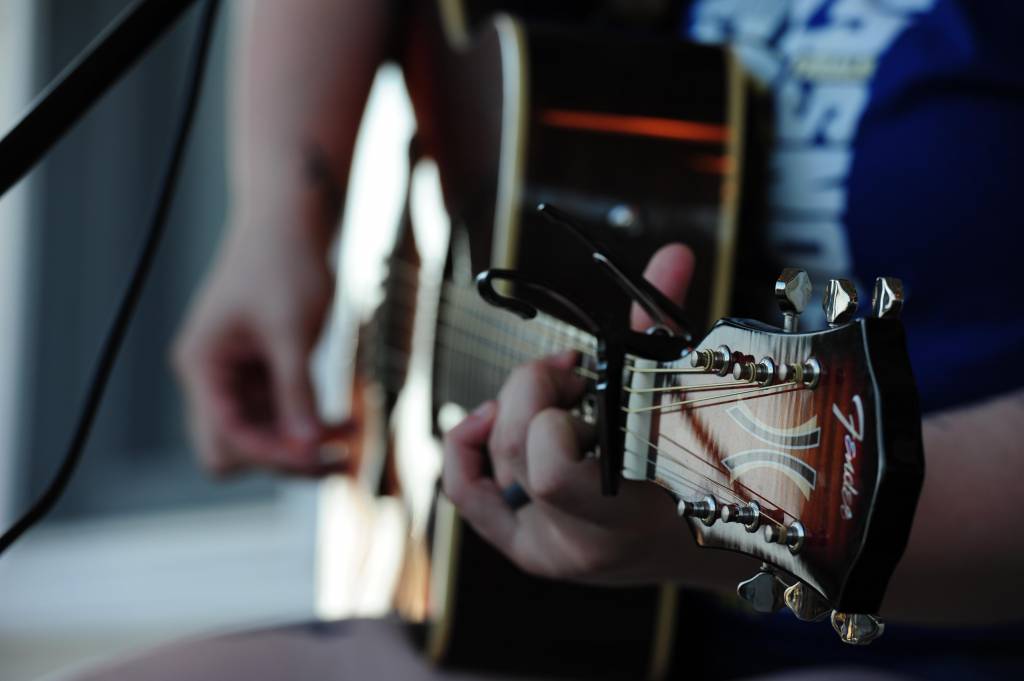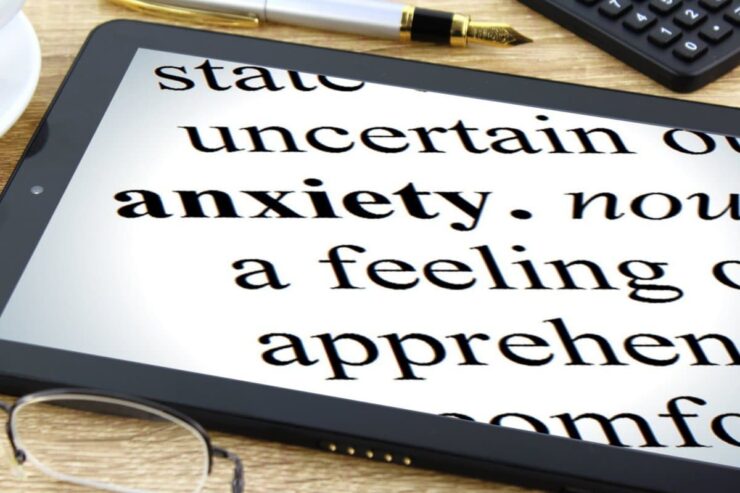Everyone gets anxious at one point or another, it’s entirely natural. However whilst some musicians take advantage of their nerves by driving the energy into their performance, others let a racing heart and trembling, sweaty hands get the better of them. Unfortunately, this can sometimes result in a poor performance.
In this blog, we take a look at a few ways to manage anxiety and stage fright by getting hints from other musicians and some helpful quotes from anxietycoach.com – hopefully this will lead to you becoming the best performer you can be!
Realise you aren’t alone
The first step in combatting your stage fright is realising you are not alone in feeling this way. It is very important to understand that there isn’t a musician alive who doesn’t suffer with some level of self-doubt and sometimes feel nervous before going onstage.
It doesn’t matter whether you’re playing to a sold-out Wembley Stadium, or a few family and friends in your living room (often more the nerve racking than the former!) it’s entirely normal to feel a little anxious or some trepidation.
There are some huge stars (who have been performing for decades!) that still suffer from stage fright. CBS News reports that’s performers like Andrea Bocelli, Rod Stewart and Barbara Streisand all suffer from nervousness in various ways.
Anxiety Coach says:
Expect, and accept, that you will feel anxious, especially at first. That’s OK. If you allow yourself to work with the anxiety, not against it, you’ll be able to calm down and proceed. If you resist the anxiety, you’ll make more trouble for yourself.”
Over prepare
A great way to help adjust to your surroundings on stage is to be totally confident in the material you are performing. The less left to chance, the better. Of course, this will be dependent on the style of music you are performing – some genre’s, like Jazz, will probably be dependent on a least a little improvisation, but you can still practice the scales you are planning to use!
Perform more
The best way to combat nerves about anything is with experience. The more often you perform, the more comfortable you will become in the situation and the less nervous you will be before hand.
Nerves begin to ease once the musician feels confident in his/her ability to perform and factors such as a strong, supportive crowd response will boost confidence.
Whilst anxiety attacks are unhelpful when it comes to performing, a few nerves are often also seen as a good thing, keeping musicians on their toes and ensuring they continue to work hard at their craft.
Last Minute Musicians singer, Marcus Nye believes that turning up early and having a good sound check is vital to feeling confident before a gig. He says:
Most of my nerves are thoughts of plug socket locations at new venues, technical issues, microphone feedback and less to do with the thought of playing the actual song come the performance. So getting the right PA and a good consistent sound check each time….. then relax.
Be organised
A large part of being a professional musician is all about being prepared and able to deal with things when they go wrong. By turning up early and giving yourself ample time to prepare for the performance, you should things go wrong you have the time to fix them before the show.
Some musicians may find that breathing exercises or even meditation is also good method of relieving stress. Many professionals also follow a strict routine of organising lyrics, spare equipment and refreshments before going onstage.
Last Minute Musician Gavin Clarke says:
Stay in the zone and don’t let other factors like rowdy or unresponsive crowd affect your performance. If you’ve played the songs lots of times, just concentrate and don’t let your mind wander. If things go wrong or not as planned, just stay calm and try not to show to your audience. As the saying goes: ‘The show must go on!’

Last Minute Musicians guitarist Ben Bowden put together a short list that he believes helps to settle pre gig nerves:
1) Make sure you’re in a band with people you can laugh with, as this loosens the jaw muscles and relaxes the mind
2) Use your own sound team when you can. Although some guys are excellent, others are not. Minimise the variables you cannot control
3) Bring a packed lunch. I never get time to get out and get fed
4) Know your stuff and be well rehearsed
Visualization
A common technique used by professionals in other activities (such as diving) is visualising the performance before it happens.
Focusing on exactly what your role is, whether it be a complicated solo or singing a high note, whilst envisaging the performance will help calm the nerves when it is actually happening.

Anxiety coach says:
“If you want to talk (or sing, act, etc.), you have to breathe. And if you want to do these things calmly, you’ll need to breathe diaphragmatically. This won’t always come naturally, and you’ll probably need to practice. You might think you already know everything there is to know about breathing, and if you’re a professional singer you probably do. But everybody else, be sure to take a look at the breathing material.”
Develop a rapport with the audience
Everybody has a different style of performing. It’s a very personal thing that you develop through your own experiences and absorbing the habits of your heroes and inspirations.
One way to combat being afraid of performing in front of people is to break down the invisible barriers between you. Interact with the audience and make your performance feel less of a formal occasion.
Anxiety Coach says:
Establish contact with the audience through eye contact and talking directly to them. Ask them questions to get them involved… While your natural instinct will probably be to avoid the audience as much as possible… you will actually feel less anxiety once you get the audience involved with you.”
Reward yourself for successful performances
While the cold hard cash and sense of relief can often be rewarding enough, take a few minutes to reflect on the successful elements of your performance in a positive light. Maybe enjoy a drink, something to eat and relax!
Do you get stage fright or anxiety? Let us know how you overcome it in the comments below!
Share this:



















